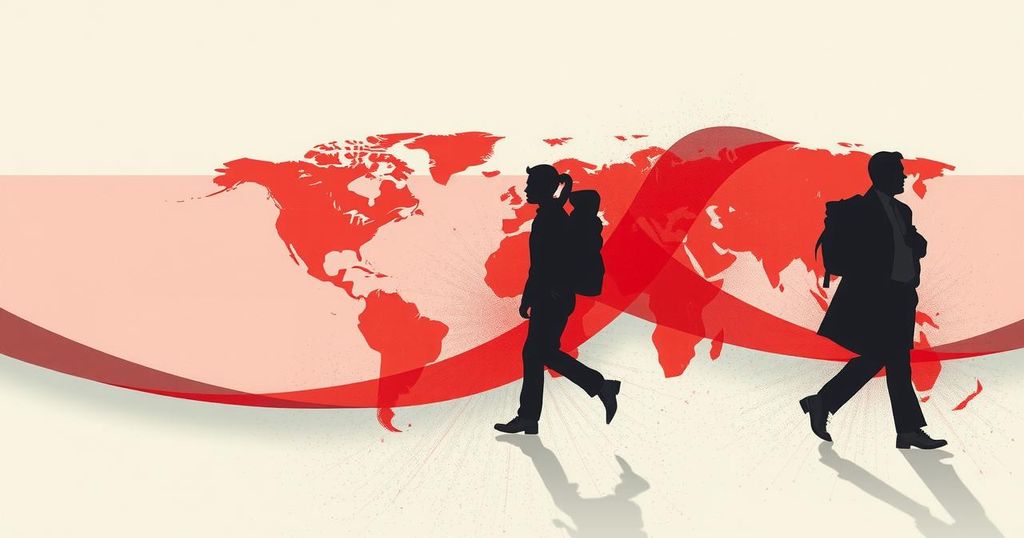Recent deportations of Venezuelan migrants by the Trump administration resemble El Salvador’s authoritative tactics under President Nayib Bukele. This situation raises serious concerns about human rights abuses as individuals are detained without clear legal accusations. The consolidation of power in both nations signals a disturbing trend towards authoritarianism, warranting scrutiny of the implications on civil liberties.
The recent deportations of Venezuelan migrants by the Trump administration echo policies previously seen in El Salvador under President Nayib Bukele. El Salvador has utilized dramatic messaging in videos displaying military and police efforts to handle deportees, subjecting them to high-security conditions. This follows El Salvador’s declaration of a “state of exception” in 2022, granting authorities broad powers to detain individuals without solid evidence.
The U.S. government has upheld its image as a promoter of liberty while simultaneously dispatching Venezuelans, suspected of gang affiliations but not proven guilty, to El Salvador’s notorious prison system. Critics argue that this action reflects an endorsement of Bukele’s controversial governance model, relying on arbitrary detentions in the name of security.
Over the weekend, 238 Venezuelans were transferred to a high-security prison, known as the Terrorism Confinement Center, as part of the U.S.’s immigration enforcement. Although the legality surrounding these deportations remains ambiguous, the Trump administration’s actions exemplify a trend of disregarding judicial oversight. Experts claim that this model facilitates the consolidation of authoritarian control, leading to a suspension of civil liberties under the guise of crime-fighting.
While the Trump administration justifies its actions by labeling the deportees as criminals, many individuals face deportations based on mere allegations without evident wrongdoing. Ms. Johanny Sánchez, a wife of a deported Venezuelan, expressed her despair over her husband’s wrongful classification. This scenario reflects a growing trend towards assuming guilt rather than innocence, indicative of Bukele’s overarching governance style.
As Ecuador, Honduras, and Peru adopt similar authoritarian strategies, Bukele’s approach is garnering acceptance across Latin America. His strategies, which have gained immense popularity despite their inherent risks, illustrate a shift in governance resonating throughout the region. In light of these developments, it’s essential to scrutinize the implications of such policies on human rights and civil liberties.
The deportation of Venezuelan migrants to El Salvador illustrates a concerning trend of adopting authoritarian tactics in immigration policies. This situation raises significant concerns regarding human rights violations and the erosion of civil liberties, mirroring practices under President Bukele’s leadership. With growing acceptance of these measures in Latin America, it becomes imperative to critically evaluate the long-term consequences this model may have on democratic governance and the treatment of migrants.
Original Source: www.csmonitor.com




